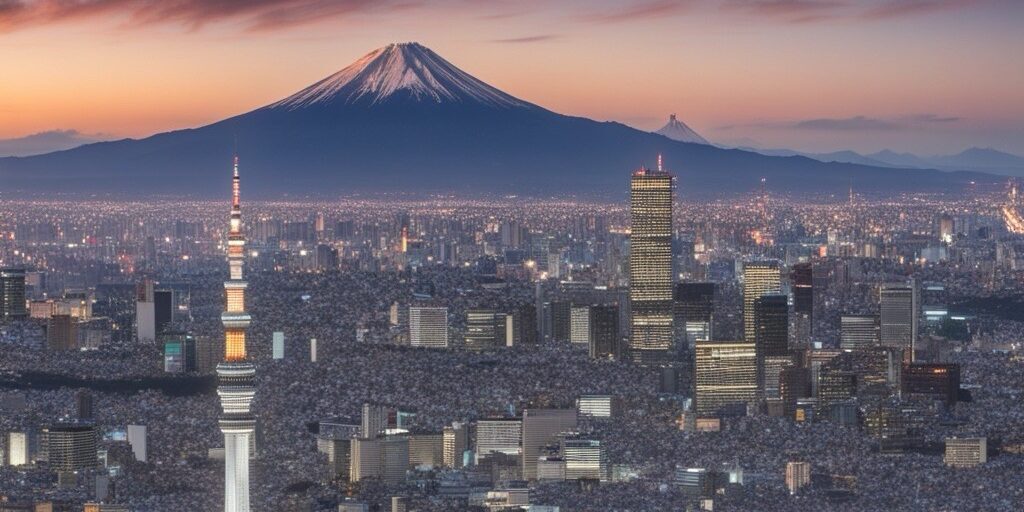Tokyo, the bustling metropolis of Japan, has become an international hotspot, attracting millions of tourists each year. The city’s popularity can be attributed to a variety of factors, including its rich history, vibrant subcultures, and unique blend of traditional and modern elements.
Tokyo’s rise to fame can be traced back to its long and storied history. As the capital of Japan for over a century, Tokyo has played a central role in the country’s political, economic, and cultural development. The city’s historical sites, such as the Imperial Palace and Senso-ji Temple, offer visitors a glimpse into Japan’s past and provide a sense of connection to its ancient roots.
In addition to its historical significance, Tokyo is also known for its vibrant subcultures. From fashion to music to art, the city is a hub of creativity and innovation. Harajuku, a neighborhood in Tokyo known for its eclectic street fashion and cosplay culture, has become a global phenomenon, attracting fashionistas and trendsetters from around the world. The city’s thriving music scene, which includes genres like J-pop and punk rock, has also contributed to Tokyo’s popularity as a cultural hotspot.
One of the most unique aspects of Tokyo is its ability to seamlessly blend traditional and modern elements. On one hand, visitors can explore historic neighborhoods like Asakusa and Ueno, where ancient temples and traditional ryokan inns still stand. On the other hand, they can experience the cutting-edge technology of Akihabara, known as the “Electric Town,” where stores selling the latest gadgets and electronics line the streets.
Tokyo’s popularity has also been fueled by its reputation as a city that never sleeps. From neon-lit streets and towering skyscrapers to bustling markets and lively nightlife districts, Tokyo offers something for everyone, no matter the time of day. The city’s 24-hour convenience stores, known as konbini, are a testament to Tokyo’s round-the-clock energy and vitality.
Another factor contributing to Tokyo’s popularity is its reputation as a culinary paradise. From world-renowned sushi and ramen to trendy cafés and izakayas, the city offers a diverse array of dining options that cater to every palate. Tsukiji Fish Market, the largest wholesale fish market in the world, is a must-visit destination for food lovers looking to sample fresh seafood and other delicacies.
In recent years, Tokyo has also gained popularity for hosting major events and festivals that showcase its vibrant culture and traditions. The city’s annual cherry blossom festival, known as Hanami, attracts millions of visitors who come to admire the beautiful pink and white blooms that signal the arrival of spring. Other events, such as the Summer Olympics and the Tokyo International Film Festival, have further elevated Tokyo’s status as a global cultural capital.
In conclusion, Tokyo’s popularity can be attributed to a combination of factors, including its rich history, vibrant subcultures, and unique blend of traditional and modern elements. The city’s ability to appeal to a wide range of interests, from history buffs to foodies to fashion enthusiasts, ensures that there is something for everyone to enjoy. Whether exploring ancient temples, sampling world-class cuisine, or immersing oneself in the city’s lively street culture, visitors to Tokyo are sure to be captivated by its energy and allure.

